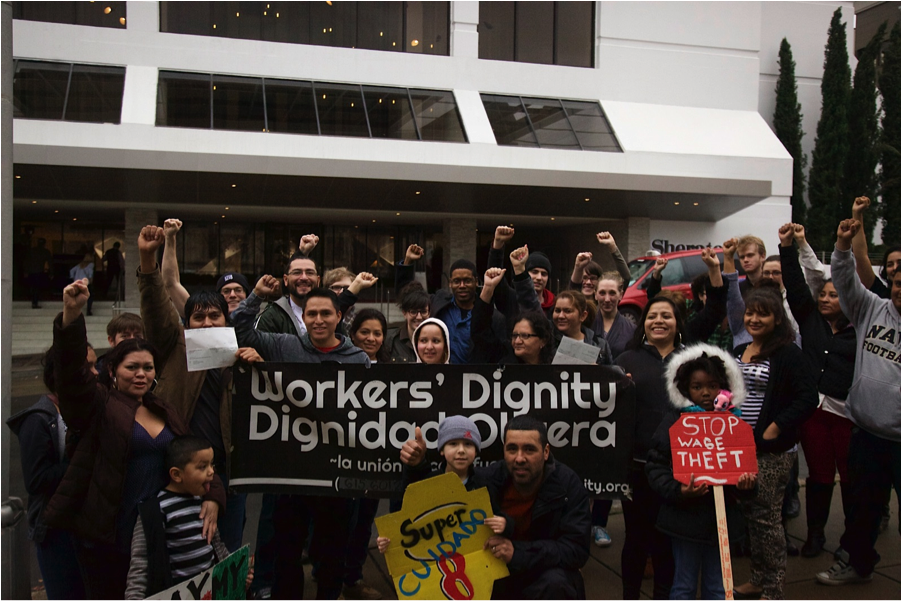A worker-led, community radio station is coming to Nashville, Tennessee. Workers’ Dignity/Dignidad Obrera, a worker-led workers’ center based in Nashville, is currently fundraising to support Nashville’s first ever worker-led radio station, designed to be a mixtape of music and social justice, powered by the voices of those left out of Nashville’s recent rise to national prominence.
As low-wage workers continue to be priced out of their neighborhoods as a result of the massive development projects and gentrification occurring throughout Music City, it is important for outlets such as Radio Dignidad to exist so that our community does not lose sight of those struggling to survive in the quickly changing Nashville landscape.
Workers’ Dignity/Dignidad Obrera was founded in Nashville in 2010 in an effort to combat the epidemic of wage theft plaguing low-wage workers in Middle-Tennessee. Through organizing, fundraising, phone calls, visits to workplaces, and other acts of solidarity, Workers’ Dignity/Dignidad Obrera has helped workers recover over $200,000 in stolen wages.
Workers’ Dignity/Dignidad Obrera now has the opportunity to expand their efforts and ability to organize and empower low-wage workers in Nashville through their radio station. To do that, they need the support of the community and those in solidarity with workers. Workers’ Dignity/Dignidad Obrera plans to launch the radio station on 104.1 FM in 2016. They need to raise funds to purchase the expensive equipment needed to broadcast. Their current goal is to raise $10,000 by Thanksgiving. Together we can change the tide in Nashville, and bring power back to the voice of the people.
You can donate to their campaign here.
(Photo Credit: Workers’ Dignity/Dignidad Obrera) (Video Credit: Workers’ Dignity/Dignidad Obrera)

